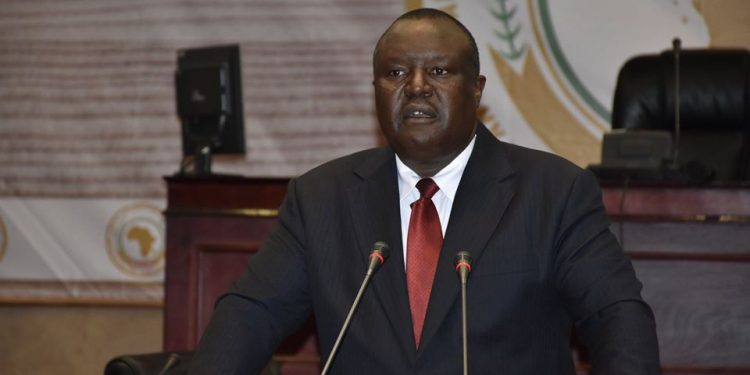Arecent attempt to unconstitutionally dethrone Chief Fortune Charumbira, the President of the Pan-African Parliament (PAP), has shaken the foundations of the continental body. This dramatic episode was recently reported by Zimbabwe’s state news agency, shedding light on the tumultuous events that have unfolded within the PAP.
The attempt to oust President Charumbira was led by his second vice president, Dr. Ashebiri Gayo from Ethiopia. However, this coup attempt quickly unraveled as four out of the five members of the PAP presidency distanced themselves from Dr. Gayo’s actions.
In a joint letter addressed to Dr. Moussa Faki Mahamat, Chairperson of the African Union (AU) Commission, President Charumbira and three other vice presidents – Professor Massouda Mohamed Laghdaf (Mauritania), Lúcia Maria Mendes Gonçalves dos Passos (Cape Verde), and Francois Ango Ndoutoume (Gabon) – criticized Dr. Gayo for his violation of the established regulations. They pointed out that the acting presidency is meant to rotate, and it was Prof. Laghdaf’s turn, not Dr. Gayo’s.
The tumultuous events came to light when Dr. Gayo unilaterally declared himself acting president of PAP, leading to bizarre directives and threats to staff members who refused to comply with his actions. He even attempted to prevent Prof. Laghdaf from assuming the role of acting president, citing his own authority.
Dr. Gayo’s actions were met with protests, not only from the PAP presidency but also from the PAP Northern Region Caucus, which holds the post of first vice president. They questioned the basis of his authority to call for a new election for the first vice president.
According to the letter from the PAP presidency, Dr. Gayo, along with some rogue PAP MPs and a Zambian social media activist, Joseph Kalimbwe, were allegedly sponsored by a South African businessman to undermine the principle of rotational presidency. The letter indicated that the coup plotters had devised their plan in Ethiopia before executing it in South Africa.
These events have exposed deep divisions within the Pan-African Parliament, and they raise questions about the stability and integrity of the institution. The PAP, which is responsible for managing the affairs and facilities of the African Union’s legislative body, now faces an uncertain future as it grapples with internal power struggles.



